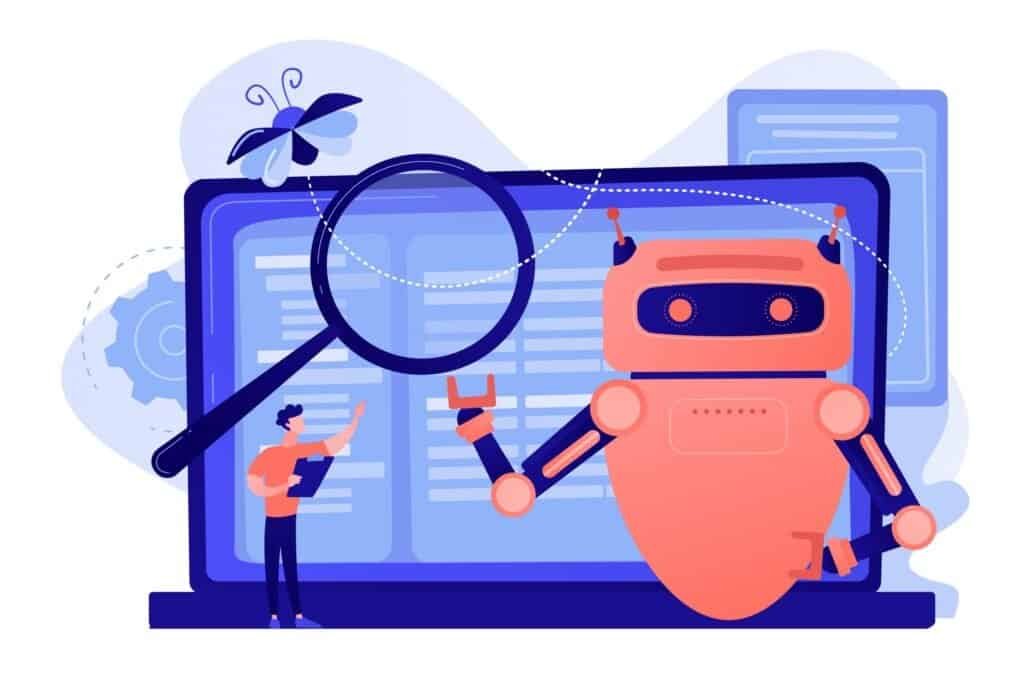Hey man! The world of online business is in an uproar. ChatGPT has exploded onto the scene, and everyone’s buzzing about the potential of AI to create content. Suddenly, the idea of churning out blog posts, articles, and social media content at lightning speed seems not only possible, but inevitable. But, will this AI-driven revolution make SEO obsolete? Will Google punish you for using AI? Let’s dive in.
The AI Content Dream: 10 Articles a Day?!
The initial reaction to AI content generation was pure excitement. Imagine, no more writer’s block, no more endless hours staring at a blank screen. Tools like ChatGPT promised to create articles in minutes, not days. The dream was to produce mass amounts of content, dominate search results, and rake in the traffic. Some even fantasized about firing their writers and assistants and training a new AI assistant to create 10 articles a day.
Hold On, Is Google About to Slap Your Site?
But, there’s always a catch, right? The fear quickly surfaced that Google would penalize, or even completely demote, any site using AI-generated content. Is Google really going to give you the dreaded Google slap for using AI? Is all this automation going to come crashing down?.

The Truth About AI and Google: It’s Not What You Think
Here’s the real scoop: AI has been part of Google’s algorithms for years. It’s not new technology, it just became a popular topic of discussion with the release of ChatGPT. Google has been using AI to understand content for almost a decade. It’s been used in translation systems for many years.
AI is Here to Stay: Get Used to It
Tools like ChatGPT are powerful, capable of generating a lot of content, very quickly. You might as well get comfortable with it. They can produce content, summarize text, and even adapt to specific writing styles. In fact, they have the potential to become a part of your everyday life.
The Problem with the AI Dream
If everyone is using AI to produce content, what will happen? Everyone will be doing the same thing. AI content creation can easily become a race to the bottom with every website being filled with similar, and ultimately unhelpful, articles. Google is about quality.
The Myth of Content Frequency: Is More Always Better?
There’s a myth that publishing tons of articles will boost your rankings, but that’s not the case. It’s not about frequency, it’s about quality. Google cares about page quality and user experience. Google wants to see that your content is updated, maintained and optimized.
The “Topical Authority” Secret: How to Become a Google Favorite
Google loves it when a website dives deep into a particular topic. This is known as “topical authority”. By writing extensively about a subject, you demonstrate your expertise. If you cover every aspect of your niche, Google has no choice but to see you as an authority and rank your content. This method can help you monetize your website quicker because you’ll achieve authority status faster.
The Human Touch: Why You Still Need It
Despite the power of AI, a human element is still essential. Don’t just copy and paste AI-generated content onto your blog and hit publish. Using AI as a writing tool, without a human touch, is not a recommended practice.
Google’s Secret Weapon: Semantically Related Content
This is where things get really interesting. Google doesn’t just look at keywords; it focuses on the meaning behind the words. This is called semantic search. Google wants to understand the relationship between different concepts in your content. Think of it like connecting the dots. Google is trying to see if your content makes sense and if you connect the concepts.
The Semantic Content Secret Weapon: How to Make Google Love You
To master semantic search, you need to connect the dots in your content. For example, if you are writing about email marketing, you need to connect it to concepts like subject lines, copywriting, and storytelling. When you create these connections, you make your content easy for both users and Google to understand. When Google sees that the dots connect, it will rank you higher.
Don’t Be a Dot-to-Dot Mess: Make Sense to Google
If your articles are a jumbled collection of disconnected ideas, they won’t rank well. Google needs to see the whole picture, like a finished dot-to-dot drawing. Ensure that your articles make sense by connecting all the related concepts.
The AI Content Process: A Step-by-Step Guide
So, how can you use AI to create content effectively? Here’s a step-by-step process:
- Research First: Before you write, research what Google already ranks for your chosen keywords. This will give you a better idea of what Google looks for in high-ranking content.
- Brainstorm: Use AI tools like ChatGPT to brainstorm title ideas, jokes to use as openings, and topic ideas.
- Create an Outline: Use AI to create an outline for your article, and then refine it. A good outline is essential because it provides structure.
- Semantically Related Content: Ask AI for semantically related topics to the subtopics. Use AI to generate content that includes semantically related keywords. This will help Google understand the context of your article.
- Go Section-by-Section: Don’t try to write an entire article at once; work on it section by section.
- Add Context: Give the AI context. The more information you provide about your goals, your brand, and your audience, the better the AI will perform.
- The Human Touch: Once you have a draft, hand it over to an experienced writer to add personality, brand voice, and make sure it converts.
- The Who, How, and Why: Make sure your article answers the who, how, and why questions. This helps build trust with your audience.
The Importance of Brand Search: Why People Google You
People will Google your brand name before buying from you. You need to make sure that your brand comes across professionally. Your brand’s presence on Google can impact your conversion rate. If people can’t find what they are looking for, or they don’t like what they see, they may go to another site.
Is Your Site in Decay? Don’t Let it Die
It’s not enough to create content and forget about it. User behavior changes over time, so you need to keep updating and maintaining your articles. If you don’t keep your content current, Google will adjust to the user behavior and your articles will stop ranking.

The Evergreen Content Lie: Why Your Old Content Needs an Update
The idea of “evergreen content” is a myth because user expectations and behaviors change constantly. A user today may not want to read an article the way a user did six months ago, so you have to update your content to accommodate that shift. This could include changing the layout of your articles, adding more images or links, or creating tables of contents.
Don’t Waste Your Time: Invest Your Resources Wisely
Many people waste time and resources on SEO, focusing on the wrong things. They need to focus on the right things to get results. Hiring an SEO expert will get you better results faster.
Traffic is Not the Only Goal: Focus on Conversions
It’s not enough to get traffic. Your goal should be to drive conversions. You need to make sure that your content prepares readers for the next step, whether that’s a lead magnet, a course, or a sale.
Tracking Your Success: The Key to SEO Optimization
Conversion tracking is essential for making data-driven decisions. This will help you identify which articles are driving conversions and which ones need to be updated.
The Shocking Truth About Too Much Content
Creating too much content can actually hurt your SEO. If you publish too many articles on a website, Google won’t understand what your business is about. It will begin to appear that the content is irrelevant, which Google will interpret negatively.
Don’t Be a Content Spammer: Be Niche-Focused
It’s better to have a limited number of well-focused, high-converting articles than a ton of irrelevant content. It’s a waste of time and resources to focus on the irrelevant content.
AI Detection Tools: Are They Really Necessary?
A new industry of AI detection tools is emerging. They use AI to detect if a different AI created text. While useful, they are not perfect.
Google’s Stance on AI: It’s Okay If You Do It Right
Google doesn’t consider AI-generated content to be inherently bad. Many sites already use automated content, and that’s okay. If your AI-generated content is genuinely helpful and serves the user, it might still rank well.
The Intention Behind the Article: What’s Your Why?
The most important thing is the intention behind your article. Why are you writing it? If you are trying to serve the user and solve a problem, Google may see that and rank you higher.
Don’t Just Re-Write AI Content: Add Value
Using a tool like QuillBot to rewrite AI-generated content might not be the best approach. If your content does not provide value, Google won’t rank you higher.
How to Use AI Effectively: It’s a Tool, Not a Magic Wand
Think of AI as a tool to enhance your existing processes, not a shortcut. If you see AI as a quick way to scale your business with fewer resources, you are mistaken. There might be temporary gains, but you won’t get long-term results. Google remembers your site’s history.
The Key Takeaway: You Need a Strategy
The days of writing whatever comes to mind are over. You need to develop a content strategy with all of this in mind.

Conclusion
AI is a powerful tool that can help you speed up content creation, but it’s not a replacement for human expertise. Your focus should be on creating high-quality, semantically related content that serves the user.
FAQs
Is it okay to publish AI-generated content on my website? Google doesn’t have a problem with AI content if it serves a genuine purpose for the user. Focus on quality and making sure that your articles provide value to the reader.
Should I use an AI detection tool on my content? If you’re working with writers or using AI tools for content, it can’t hurt to use a tool like originality.ai to check for AI-generated content, but don’t assume these tools are perfect.
How can I improve my website’s ranking? Focus on creating topical authority, making sure that the content is high quality, and semantically related, and that you’re updating your content to meet the changing needs of your audience. Don’t create content just for the sake of creating content. Make sure there is a purpose behind every article you publish.

